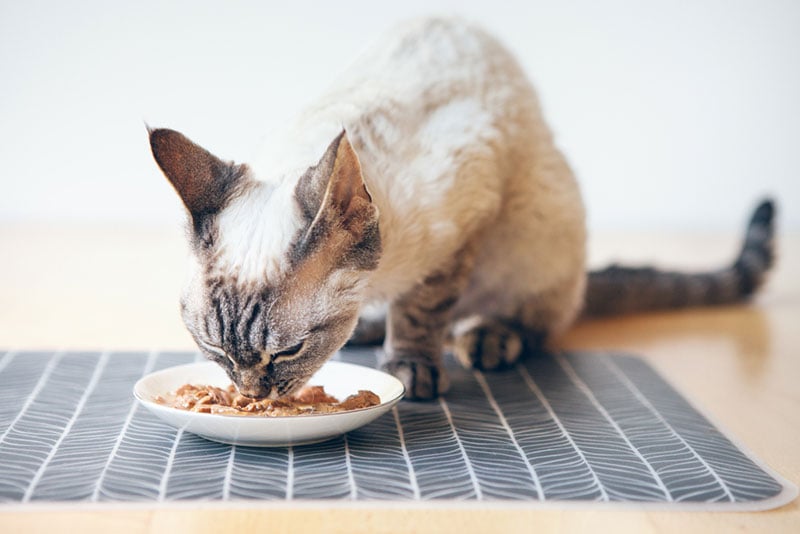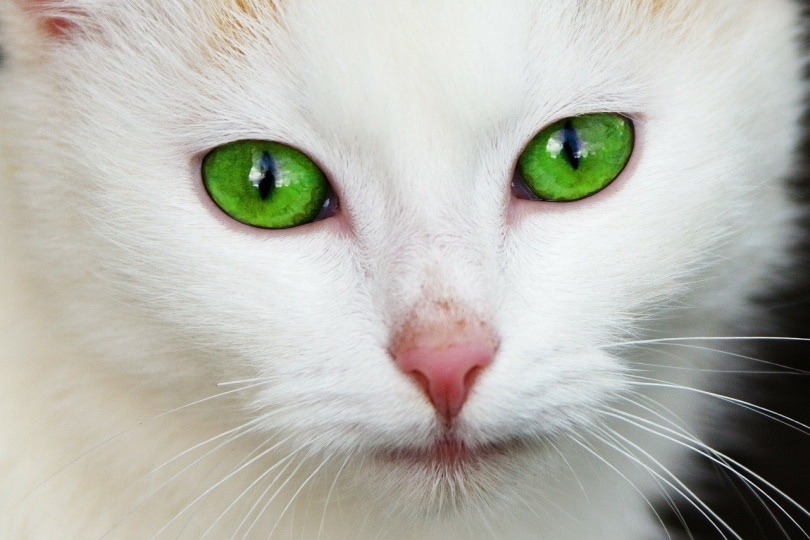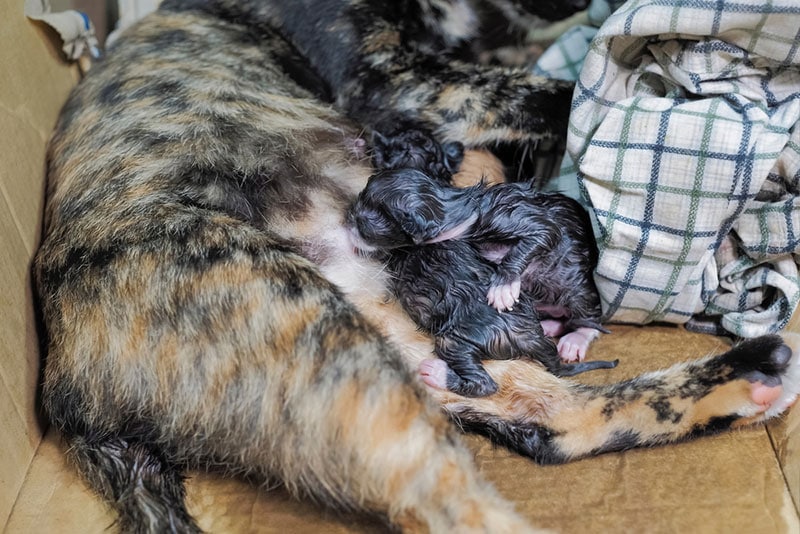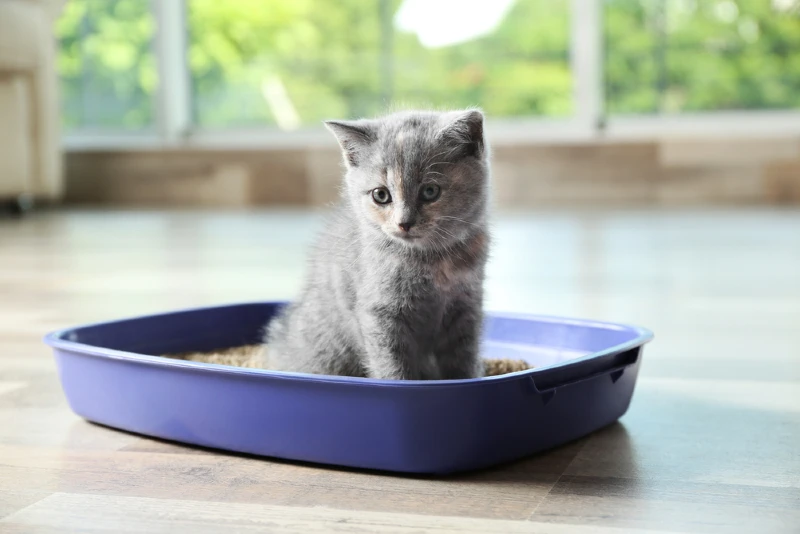Can Cats Eat Muffins? Vet-Reviewed Facts & Risks
Updated on

Click to Skip Ahead
Muffins are a favorite treat for many because they are easy to make and delicious. But one of the biggest dilemmas for many pet owners is whether we should share our food with our pets. The answer is complex and depends on many factors, especially when it comes to muffins. They contain many different ingredients and flavors; some of which could harm your cat, so you should avoid them.
Stick with us for more information on feeding muffins to your cat, and the potential risks.
Ideal Cat Diet
The most important thing for every cat owner is that their cat is happy and healthy, and a proper diet is a crucial part of that. Cats are obligate carnivores, meaning that meat should be the staple of their diet. Their diet requires high amounts of protein, medium amounts of fat, and minimal carbohydrates. But it is crucial that cats also have a diet containing many vitamins and minerals to keep their immune system strong for fighting different diseases.
There are a lot of high-quality commercial foods, and using these types of food means your cat is getting everything their body needs. Some owners prefer to make their own cat food at home, which is a great option provided you are able to meet all your cat’s nutritional requirements. Muffins are not one of those requirements!

Ingredients in Muffins
Muffins are one of the most popular types of baked treats—they are straightforward to make, and they contain a lot of common ingredients found in our kitchen. Here is a list of ingredients that basic muffins are commonly made with:
- Flour
- Liquid- milk, water, butter or oil
- Eggs
- Sugar
- Salt
- Baking powder
Muffins are often made with other ingredients that make them more tasty, like chocolate, blueberries, bananas, and other types of fruit.
Can You Give Muffins to Your Cat?
Cats are carnivores, and there is nothing in a muffin that is beneficial for them. In addition, they may be made with ingredients which, at best, may cause stomach upset, or at worst, be toxic. The amount of sugar usually found in muffins is unhealthy for your cat, and eating this sort of food regularly will lead to unhealthy weight gain.

Risks of Giving Muffins to Your Cat
The risk of eating muffins for cats is highly dependent on the flavor of the muffin. For instance, you should never give a chocolate muffin to your cat because chocolate contains a chemical compound called theobromine, which is very toxic for cats and dogs. Similarly, muffins made with citrus peel, raisins or grapes can be toxic to cats. Also, you should avoid giving any muffins made with coffee because caffeine is also toxic for cats.
But not all muffins are toxic for your cat; some are made from safe ingredients like bananas, pumpkins, or apples. However, these are still not healthy, so if you can’t resist giving your cat a taste of your muffin, we suggest you do it in tiny amounts.
Final Thoughts
Most muffins aren’t strictly toxic for your cat, but they aren’t good for them either. Some ingredients put into muffins can be harmful, such as chocolate, grapes, or any citrus peels. We love it when muffins are sweet and tasty, but foods high in sugar can lead to obesity and other health problems for cats. It is much better to keep the muffins to yourself, and offer your feline friend a more appropriate snack.
Featured Image Credit: Yehor Milohrodskyi, Unsplash














